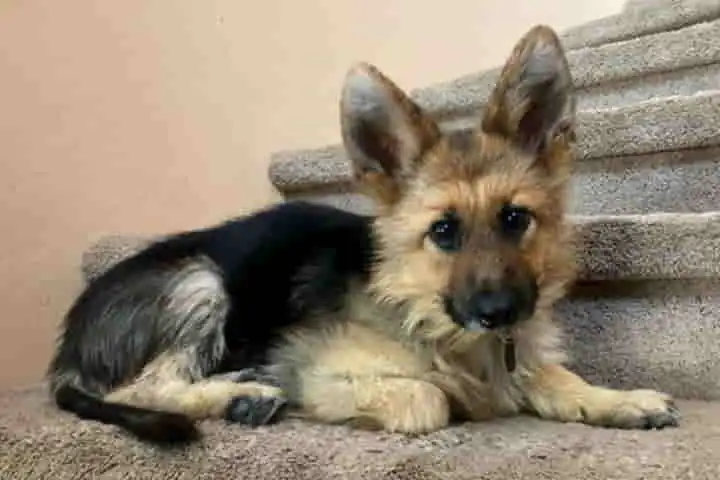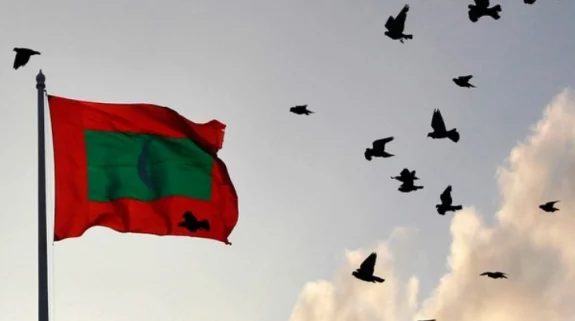He may look cute and adorable because of his puppy looks, but the truth is that his life expectancy is short. He is Ranger, an adult German shepherd, whose Instagram page has more than 1,30,000 followers.
Suffering from pituitary dwarfism, Ranger will be able to grow to just a third of the size of his littermates and unfortunately it will adversely affect his life expectancy. This is the reason why even though he is four years old, his size is that of a puppy, according to a report in dailystar.co.uk.
Owned by Shelby Mayo, a student nurse, who lives in Arizona, United States, who is rather very perturbed about the several requests she has received to breed the “forever puppy” without concern about the related health issues and short life expectancy of the dog.
The Phoenix based Mayo said: “Ranger is very cute and he’s a great dog, but ultimately this is the result of inbreeding and we want to stop that. Breeders need to be aware that this can occur and they need to try and prevent it. Ranger has had a good life so far but that's not the case for all.”
Found more among basset hounds, corgis and German shepherds, dwarfism can reduce the dog’s life to just three years.
Veterinary doctor Lynne Janes of People's Dispensary for Sick Animals explaining about dwarfism said: “Dwarfism is an inherited genetic condition whereby both parents have to be carriers of the gene for a puppy to be affected. The lack of growth hormone results in slow growth from about two months of age. Affected puppies are very obviously smaller than their littermates, and also fail to grow an adult coat – their fur remains soft and woolly. In many cases while the coat may recover, the dwarfism is irreversible and these puppies do not grow to their expected adult size. Unfortunately, the condition is life-limiting, and many dogs with the condition sadly die before they are three years old.”
Talking about inbreeding as one of the causes, Janes said: “Inbreeding can be a factor and dogs who are known to have produced a puppy with dwarfism should not be bred from again.”

Recalling how Ranger was significantly small as compared to others of the litter, when she first saw him, Mayo said: “He was definitely the runt of the litter as he was half the size of his littermates. We didn’t know at the time what condition he had but we assumed he would grow bigger.”
When Ranger suffered infection due to Giardia, a parasite which attacks the intestine, Mayo thought that could be the reason for this limited growth but a vet told her later that it was due to pituitary dwarfism.
The dog lost its coat because of low levels of thyroid but he grew it back with thyroid medication. In the beginning he faced difficulty in eating but later developed a healthy appetite.
Also read: Like humans, dogs too suffer from hyperactive impulsive behaviour
Ranger’s Instagram page was created by Mayo and her sister Darcy in 2017 to track his progress but overtime Mayo has been using the platform to create and raise awareness about inbreeding. “The Instagram page has really been a reflection of his journey, but we had no idea what it would turn into,” observed Mayo. She aims to tell the breeders about this life-affecting condition and also discourage them from breeding such dogs.

Even though Ranger faces health issues, he is spirited and in fact matches strides with his German shepherd sister, Jessie, who lives with him. Quips Mayo: “Jessie is three times the size of him but Ranger is very much the dominant one and the alpha dog.”




















